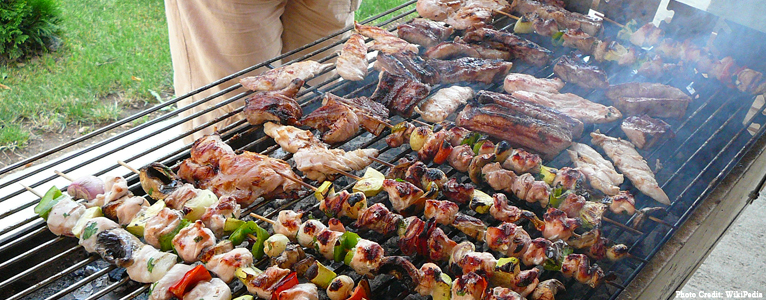
Millions of Americans enjoy and relax at outdoor barbecues every year. While these events are usually incident free, accidents do happen. The U.S. Fire Administration reports that around 5,700 grill fires take place every year, causing an average of $37 million in damage, 100 injuries and 10 deaths. Malfunctioning grills are the largest culprit of grill fires. In addition, thousands of people visit emergency rooms every year due to burns sustained while barbecuing.
Homeowner’s Policy Coverage
In the unlikely event of a grill fire spreading to your house, your homeowners insurance would provide financial protection due to fire being a covered peril. A standard homeowner’s insurance policy covers the following:
- Damage to the house.
- Damage to personal possessions.
- Damage to insured structures on your property, such as a shed.
- Injuries to a guest, under the liability portion of the policy.
Your policy deductible must be paid before your insurance kicks in, so if any damage sustained is minimal, check to see if it makes sense to file an insurance claim.
The best way to enjoy grilling outdoors is to take steps to prevent any accidents from occurring in the first place, such as maintaining your grill and using it safely.
Grill Maintenance & Storage
Gas grills are typically safe if they are properly maintained and routinely checked for leaks. It is possible however that grills can become unsafe due to faulty design or construction. The Consumer Product Safety Commission has a website where you can search to see if a recall has been issued for your grill. The following tips can help make sure everybody stays safe during the summer grilling season.
- Check your grill hoses for cracks, holes and brittleness. Also look for blockages, especially in the Venturi tube that runs to the burners. Clear any blockages with a wire or pipe cleaner.
- Run a soap solution (one part liquid soap, one part water) along hoses and at connections, then open the valve at your tank and check to make sure that gas isn’t escaping, which will be indicated by bubbles at the leaking points.
- Adjust hoses away from hot areas or where grease might drip on them as needed.
- Store propane tanks outside, away from your house. Always check to make sure valves are firmly turned off.
Safe Barbecuing Practices
When barbecuing, use common sense and follow these guidelines:
- Operate your grill on a level surface, away from your house, garage and any landscaping. Never move the grill once it is lit.
- Keep children and pets a safe distance away from the grill.
- Whoever is grilling should wear a heavy apron and oven mitts that reach high on the forearm.
- For charcoal grills, only use lighter fluid designed specifically for grilling. Never use gasoline or other accelerants, and never add lighter fluid to a lit fire.
- Never grill indoors or in enclosed areas. Burning charcoal produces carbon monoxide (CO), which can be fatal in poorly ventilated areas.
- Always keep a fire extinguisher nearby.
- Don’t cover or store your grill until it has cooled, and make sure to soak coals with water before throwing them away.
Any injuries should be addressed as soon as possible. Run cool water over minor burns and do not cover injured areas with bandages, butter or salve. In the event of more serious burns, visit the emergency room or an urgent care facility. When in doubt, it’s best to call 911.
If you sustain any damage to your property, contact your insurance professional to discuss filing a claim.

Sources: propertycasualty360.com “Time for a cookout! Grilling safety & homeowners insurance basics“, iii.org “Grilling Safety“
